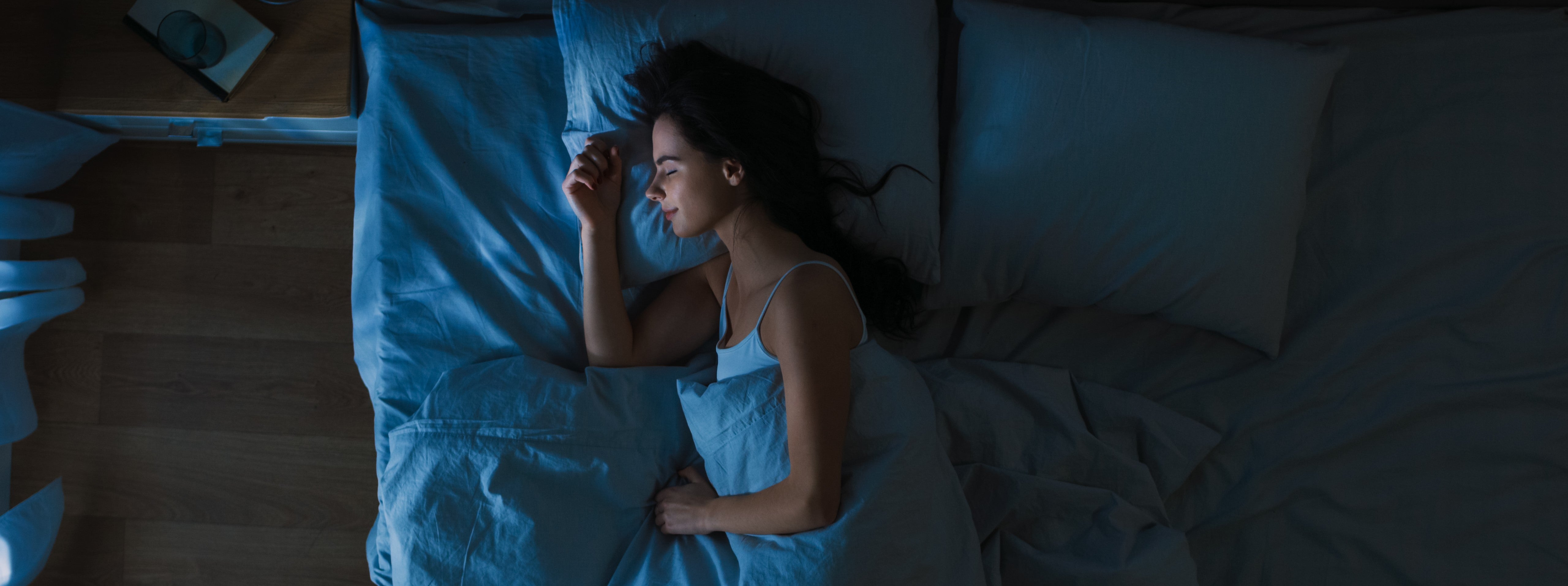
For most lifters, a good night’s sleep is probably at the bottom of their fitness checklist. After all, who has the time to count sheep when you’re busy counting reps? But even if you schedule self-care days, foam roll religiously and prep every meal to perfection, you might still find yourself sluggish in the squat rack, or struggling to stay awake on the stair climber.
This is because the quality of your sleep is just as important as the quality of your workouts, and will affect your gains more meaningfully than any other recovery ritual or meal plan.
It’s time for lifters to start taking sleep seriously, which is why we’ve collaborated with Professor Greg Roach, head of the Sleep and Circadian Rhythms Laboratory at CQUniversity’s Appleton Institute for Behavioural Science. We’ve simplified the science of sleep, so you can level up your lifting by lying down.
Why Is Sleep So Important?
If you want to become stronger, fitter and build serious muscle, sleep should be your main priority. Nearly all of your growth hormone (the essential hormone for muscle building) is produced during the nighttime while you’re sleeping, during a phase of sleep called SWS (Slow Wave Sleep). If you’re wanting to perform at your best and recover properly, you’ll need to give yourself enough time in bed so your body can cycle through the different stages of sleep - REM and Non-REM. REM sleep is best for your psychological recovery, while Non-REM is best for your physical recovery.
How much sleep do I need?
Based on a study of 200 elite athletes competing on a national or international level, 8.3 hours was the average amount of time needed to feel fully rested (meaning capable of performing at their peak). While the exact amount of time varies between individuals, it’s a good guide for serious lifters who’ll be training hard, and need greater recovery than the average person. If your sleep duration is significantly lower than this, you may find your performance in the weight room affected, experience increased muscle soreness, and you’ll be more irritable (trust us, your gym buddy will notice).
Does this mean I should put a stop to those AM sessions?
Possibly, according to the science. Lifters who train early in the morning might think they’re giving themselves the chance to go to bed early and get a proper night’s sleep, but the research suggests otherwise. Studies of elite athletes show that for every hour they start training before 9AM, they lose 40 minutes of total daily sleep. There’s a reason why this happens. On a psychological level, it’s harder for your body to start sleeping in the early evening. Secondly, you’re more likely to spend time socializing in the evening with friends or family. Even if you know you’ve got a 5AM HIIT session, science shows it’s difficult for even the most disciplined athletes to overcome the physiological and social limitations of going to bed earlier.
But this doesn’t mean you should immediately become a late-night lifter. Training too intensely or too closely to your bedtime can affect your sleep quality and duration. The increased mental and physical stimulation associated with training, combined with increases in core body temperature prevent evening trainers from falling asleep quickly. The expert advice? Allow 90 minutes between finishing training and bedtime to ensure your core body temperature can return to normal.
THE KEY TAKEAWAYS
-Based on research, 8.3 hours was the optimal amount of sleep for high-performance athletes.
-You can lose 40 minutes for every hour you start training prior to 9AM. If you’re going to lift ealy, ensure you can make up the hours in the evening.
-If you’re an evening lifter, make sure you finish that workout 90 minutes before your set bedtime.
WEAR FOR RECOVERY
Get cosy and strengthen your sleep efforts in these ultra-comfortable men's loungewear pieces.
Camo Tech Pullover Hoodie

Energy Pullover Hoodie

Flex Track Pants

Force Pullover

Preparation comes before power. Warm up in ultimate comfort so you can train with force in this winter staple. The Force Pullover features a brushed fleece fabric and oversized fit, offering casual, urban style to and from the gym.
MORE ON SLEEP
Want to discover the best five, science-approved tips for falling asleep? Our series on sleep & lifting continues here
For the full discussion with professor Greg Roach on everything sleep & strength you can listen to our What The Flex? podcast here, for free







